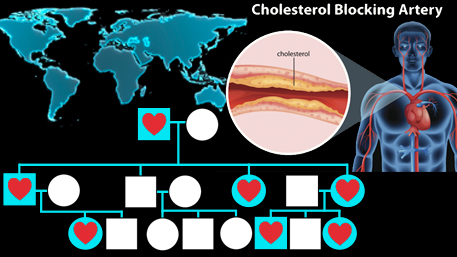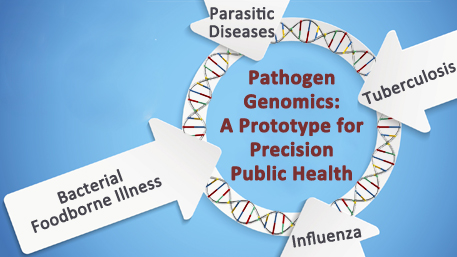Category: genomics
A Public Health Genomics Pioneer

Remembering Toby Citrin Today, public health genomics is an established and respected field which is integrated into numerous public health programs. This was not the case in the year 2000. CDC had established the Office of Genomics and Precision Public Health two years prior (initially called the Office of Genetics and Disease Prevention), but few Read More >
Posted on by 1 CommentA 2020 Reality Check on the Public Health Impact of Cancer Genomics and Precision Medicine

“Precision oncology has had some major successes… And yet, the overall effect of precision medicine on care for patients with cancer has been modest.” (David Cutler, JAMA Health Forum, 2020) The Promise of Genomics and Precision Medicine in Reducing the Burden of Cancer In 2015, the United States launched the Precision Medicine Initiative (PMI) “to Read More >
Posted on byStudy of Children with One vs. Two or More Siblings with Autism Spectrum Disorder: Expected and Unexpected Similarities and Differences

A recent prospective study from the Baby Siblings Research Consortium found that children with two or more siblings with autism spectrum disorder (ASD) were more than twice as likely to be classified as having ASD at age 3 than children with only one sibling with ASD. The Consortium was formed to facilitate prospective studies of Read More >
Posted on byGenome-wide Association studies (GWAS) in the Quest to Understand the Causes of Birth Defects

Our recent review and commentary found that relatively few genome-wide association studies (GWAS) on structural birth defects have been done, compared with the number of GWAS on other conditions. We reviewed the literature to identify GWAS on oral clefts, congenital heart defects (CHDs), biliary atresia, pyloric stenosis, hypospadias, craniosynostosis, and clubfoot. We did not find Read More >
Posted on byReducing the Global Public Health Burden of Familial Hypercholesterolemia: More Work Ahead

In our previous blog, we discussed familial hypercholesterolemia as a prototype for “precision public health” and how the combination of public health and genetic approaches can contribute to raising awareness, diagnosis, and treatment of more than 1 million individuals in the United States with this relatively common genetic condition. Familial hypercholesterolemia (FH) is an underdiagnosed Read More >
Posted on by“Precision” Health Tools and… Increased Health Disparities?

Working from the perspective of public health, we have frequently expressed concerns about the potential of precision health technology to exacerbate health disparities. Many of these discussions have focused on genomic-based approaches such as using polygenic risk scores (PRS) for a wide array of disease and health outcomes. Because of minority underrepresentation in basic research, Read More >
Posted on byProgress in Pathogen Genomics as a Prototype for Precision Public Health

Rapid advances in pathogen genomics have ushered in a new era of “precision public health.” Next-generation sequencing is already enabling more effective investigations of outbreaks of foodborne illnesses, better-targeted tuberculosis control, and more timely and granular influenza surveillance to inform the selection of vaccine strains. In a recent paper in the New England Journal of Read More >
Posted on byCommunication and Information Sharing about Genomics and Precision Health: Opportunities for Improvement

In this blog, we describe our current approach to information sharing based on a recent review of our communication and engagement strategies. In order to improve our approaches to communication, we are asking you, our readers, for feedback—please share your thoughts in the comments section below or send us an email at mailto:genetics@cdc.gov. For the Read More >
Posted on byGenomic Medicine Year in Review 2019: What’s Hot for Public Health Impact?

Advances in genomic medicine continue at a fast and steady pace. In a recent paper, The Genomic Medicine Working Group of the National Advisory Council for Human Genome Research of the National Human Genome Research Institute identified the most significant advances in genomic medicine among 48 recognized “accomplishments” published during the 12 months ending August 31, Read More >
Posted on byAre we Ready for DNA-based Population Screening? The Need for Large Collaborative Pilot Studies

This blog is a summary of a recent viewpoint published in the Journal of American Medical Association. There is increasing evidence that accepted approaches using medical history-based screening fail to identify the majority of individuals with genetic conditions associated with cancer and heart disease, including CDC tier 1 applications, such as hereditary breast and ovarian Read More >
Posted on by

